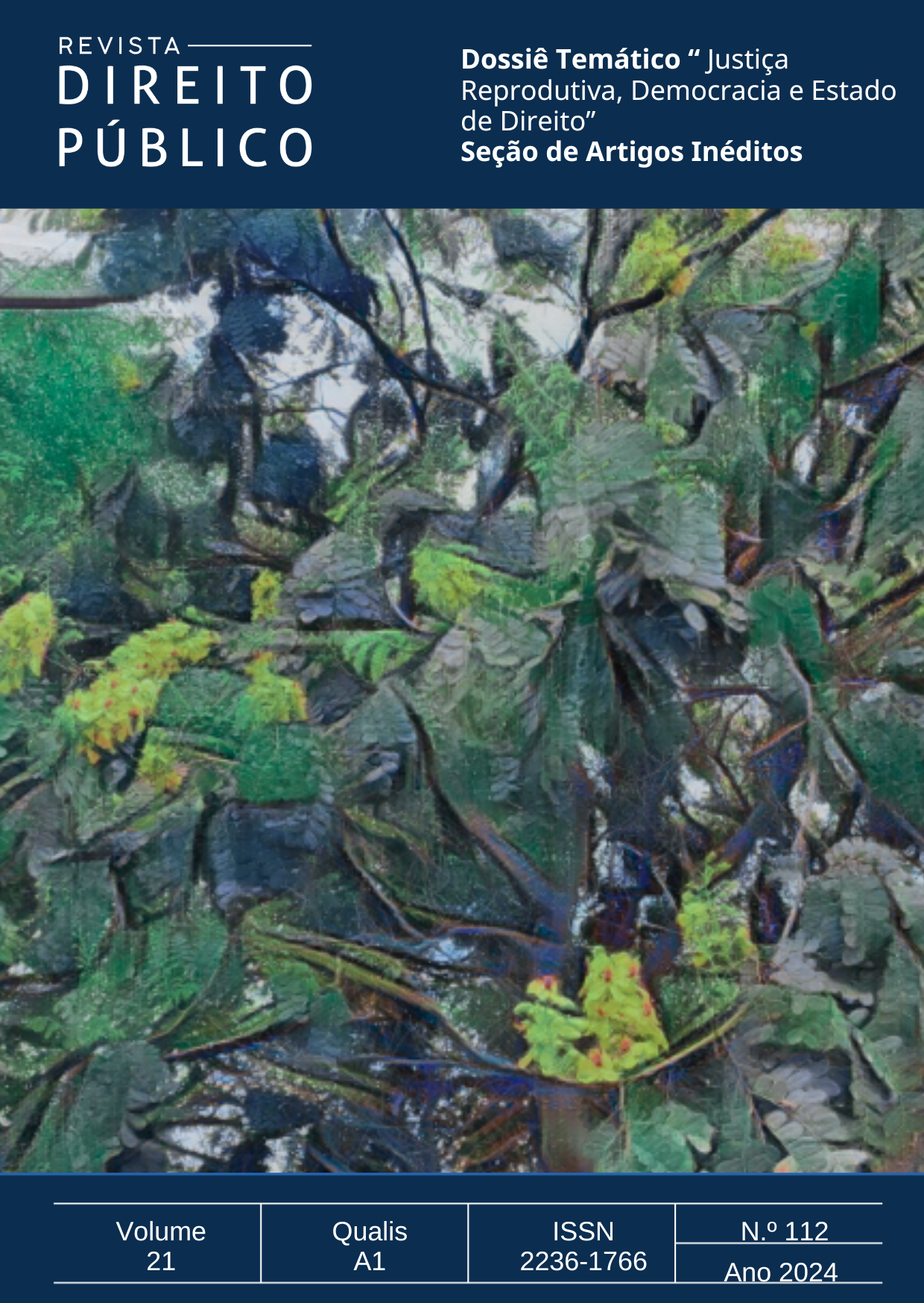When Legal Provisions Are Insufficient
Decolonial Feminist Considerations For The Debate On Reproductive Justice Based On Violations Of Legal Abortion In Brazil
DOI:
https://doi.org/10.11117/rdp.v21i112.7712Abstract
: The aim of the article is to discuss, from a decolonial feminist perspective, how the concept of reproductive justice can contribute to the analysis of institutional attempts to violate the right to abortion in the case of pregnancy resulting from rape, undertaken during the presidential administration of Jair Messias Bolsonaro (2019-2022). The hypothesis is that the articulation of anti-gender attacks has become a state policy of a moral and religious nature, which uses legal and political resources to try to abolish conquered rights, directly impacting the regulation of the bodies of black girls and women. To this end, the method used is deductive, with methodology based on documentary research into the normative texts published at the time that sought to hinder access to legal abortion, and bibliographical research of a socio-legal nature on the notions of decolonial feminism, reproductive justice, anti-gender politics and Christian neo-conservatism. The article is divided into two sections: the first investigates the institutional strategies used to obstruct or suppress the right to abortion and the second, in light of the cases presented in the previous section, analyzes the concept of reproductive justice in the Brazilian experience. As a result, it points to ways forward for the debate on reproductive justice, based on critical views of the articulation between neo-conservatism and neo-liberalism and the coloniality of gender and power in the Brazilian socio-legal and political scenario.
KEYWORDS: Decolonial feminism. Reproductive justice. Legal abortion. Rape. Anti-gender politics. Christian neoconservatism.
Downloads
Downloads
Published
How to Cite
Issue
Section
License
Copyright (c) 2025 Public Law

This work is licensed under a Creative Commons Attribution-NonCommercial 4.0 International License.
O(s)/A(s) autores(as) dos manuscritos submetidos concorda(m) com as regras a seguir:
1) Todos os autores e autoras participaram do trabalho, são responsáveis pelas ideias e conceitos nele emitidos e atestam sua conformidade com os princípios éticos exigidos.
2) Todos os autores e autoras concordam com a forma final do trabalho e em ceder os direitos para publicação nos canais de publicação da Escola de Direito do IDP.
3) Todos os autores e autoras informam que o manuscrito é de sua autoria e assumem a responsabilidade pelo trabalho, declarando que a obra a ser publicada não infringe quaisquer direitos de propriedade intelectual de terceiros.
3.1) Em caso de submissão simultânea, além da reprovação imediata do artigo e comunicação ao(s) respectivo(s) periódico(s), a Revista Direito Público se reserva o direito de não receber novas submissões de todos os autores implicados pelo prazo de 2 (dois) anos, contado a partir da data de ciência do fato.
4) Todos os autores e autoras autoriza(m) a edição de seu trabalho e cede(m) à Escola de Direito do IDP os direitos de autor para reproduzir, editar e publicar ou veicular o citado trabalho em qualquer forma midiática, resguardada a autoria, em particular sob forma digital, em arquivo eletrônico online na Internet, bem como armazená-los em seu repositório de acordo com o desenvolvimento do processo editorial. Esta concessão não terá caráter oneroso para a Escola de Direito do IDP, não havendo remuneração sob qualquer modalidade pela utilização do referido material, tendo este o caráter de colaboração científica.












